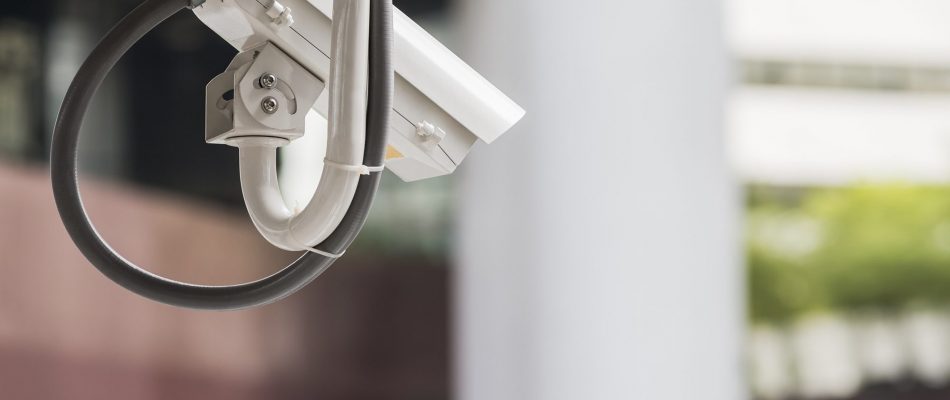Ethernet cables are important for properly functioning wired security camera systems in offices, buildings, warehouses, or manufacturing floors. Hence, choosing the right Ethernet cable for your business’s CCTV or security camera system is essential.
Let’s discuss choosing security camera Ethernet cables and everything you need to know to make the right choice.
Of course, you should always consult professional experts like Communications Solutions Inc. in Jacksonville, Florida, for all your business CCTV, Ethernet cabling, networking, and structured cabling solutions.
Choosing Security Camera Ethernet Cables
When choosing security camera Ethernet cables, you first need to understand the type of security camera you are using for your business and the types of Ethernet cables you can use for security camera systems.
There are two main types of security cameras available in the market today.
1. Analog Cameras
Analog cameras have been the standard security camera for a long time and are typically used in CCTV systems. These security cameras capture footage and transmit the signals to a Digital Video Recorder (DVR), typically using a coaxial cable or Siamese cable.
This transmission only consists of analog signals from the camera to the DVR, which is responsible for converting them into digital signals, compressing the video, and storing it on a connected hard drive. While most analog cameras typically use a Siamese cable, an Ethernet cable can do the job better in most situations.
2. IP Cameras
Internet Protocol or IP cameras are modern digital video cameras that exchange video and control data through an IP network. They eliminate the need for signal conversion or local video storage and do not need a recording device like a DVR.
Instead, they require a LAN or local area network. You can use Power over Ethernet (PoE) to install IP cameras around your business spaces. This type of IP camera security system is the gold standard of video surveillance because it allows you to incorporate the video, audio, and power transmission into a single connected cable.
IP cameras offer a variety of video resolutions including 720p, 1080p, 4K, etc. While 1080p IP cameras are more than adequate for most general security purposes, more businesses are now opting for 4K resolutions. A typical IP camera works fine with a Cat5 or higher Ethernet cable.
So, if your business, office space, floor, or building already uses these Ethernet cables, IP security cameras are a suitable fit. IP cameras are different since they offer better resolution, installation, accessibility, storage, flexibility, and scalability than Analog cameras.
Ethernet Cables
Ethernet cables are the most common type of networking cable used for business networks around the world. They connect all the devices of a network, including computers, routers, printers, servers, switches, and even VoIP phones, with each other to create a LAN.
The typical Ethernet cable has eight insulated copper wires that are twisted in pairs to create four twisted pairs of wires. These four twisted pairs are arranged to reduce internal signal interference between them.
Within a security camera system, the Ethernet cable has two key functions. Firstly, it connects the security cameras to your business network, allowing you to access, view, and manage your IP camera footage from authorized devices on the network.
Secondly, the cable can power your IP cameras if you use a PoE switch for your security camera system. The great thing about such a system is that you do not need separate cables for both these functions, which means one Ethernet cable can supply the power and exchange data from IP cameras.
Ethernet cables also help reduce the occurrence of lag or disconnection with cameras, which is more common with coaxial or Siamese cables. Moreover, Ethernet cables are also typically less expensive than heavy, copper-rich coaxial cables.
Ethernet Cables for Security Camera Systems
As mentioned earlier, most security camera systems can work well with Cat5 or higher Ethernet cables. A Cat5 is a “Category 5” Ethernet cable that succeeds Cat4 and Cat3 cables and precedes newer, Cat6 and Cat7 cables.
Globally, Cat5 is the most commonly used cable, and most businesses use a Cat5 network or higher. Here is a comparison chart showing the key performance metrics of Cat5 and higher Ethernet cables relevant to a security camera system.
| Ethernet Cable Category | Transmission Speed up to 100m | Bandwidth |
| Cat5 | 10/ 100 Mbps | 100 MHz |
| Cat5e | 1000 Mbps / 1 Gbps | 100 MHz |
| Cat6 | 1000 Mbps / 1 Gbps | 250 MHz |
| Cat6a | 10000 Mbps / 10 Gbps | 500 MHz |
| Cat7 | 10000 Mbps / 10 Gbps | 600 MHz |
So, which Ethernet cable is best for your business security camera system?
That depends. Cameras with higher resolutions require higher bandwidth and transmission rates from the Ethernet cable. While a Cat5 cable can easily support the load of any modern high-resolution IP camera, it may not be able to support several high-resolution cameras at once.
A typical 1080p IP camera may require between 4 and 12 Mbps, whereas a typical 4K IP camera may take anywhere between 16-48 Mbps. Given that the average office or business needs between 1-3 dozen security cameras, these numbers pile up quickly.
Larger businesses, spaces, and buildings may even require 60 or more cameras. In such situations, a typical Cat5 cable will never be enough to support the security camera system. Installing Cat5e or Cat6 Ethernet cables is the best solution for most businesses
They can support over a dozen 4K security cameras or around 3-4 dozen 1080p security cameras and still have leftover performance. Since most businesses do not require 4K resolution footage or more than three dozen security cameras, Cat5e cables are ideal.
However, if you have special requirements, a large space to cover with plenty of cameras, or if you expect growth and want to future-proof your business, you may consider a Cat6, Cat6a, or Cat7 Ethernet cable instead.
Conclusion
If you do not choose the right Ethernet cable for your security cameras, you may experience poor performance, lag, and occasional blackouts or downtime. Such issues are not ideal because the security of your business should always be a top priority.
Hopefully, our guide for choosing security camera Ethernet cables will help you make the right choice. However, every business is different and may have different requirements from the security camera system.
Other times, external factors may need to be considered before you choose Ethernet cables. Hence, you should always consult experts like Communications Solutions Inc. in Jacksonville before you make a decision.
If you want to learn more about choosing security camera Ethernet cables, IP cameras, CCTV, structured cabling, or if you want the most comprehensive and professional solutions for your business in Florida, Contact Us Today.



